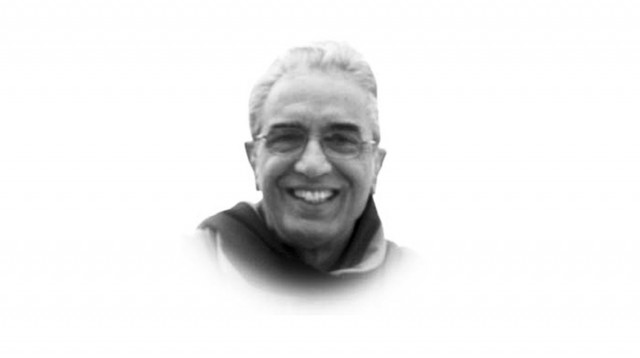
Before Aafia Siddiqui spoke, her lawyer made what sounded, at least to me, a compassionate plea for a minimum sentence. She argued that Aafia Siddiqui was not mentally stable, or words to that effect, because of the impossible circumstances she had been through. That she needed professional care and compassion rather than a long term in prison. The lawyer concluded her plea by asking for a sentence not more than 12 years.
All this time, Afia Sidddiqui sat quietly, clad in a beige niqab, only her eyes visible. At times she would place her head on the table in front of her, as if not interested in what her lawyer was saying, or would stretch back into the chair clasping her head in both hands, as if exasperated. Soon after her lawyer finished, she stood up and asked the judge if she could say something. The judge said yes.
Then Aafia spoke. It was as if a dam had been breached; the words came gushing out of her mouth like a torrent. She spoke in a sharp voice and flawless English. Every once in a while she would pause and ask the audience, like a teacher in a classroom: “Do you understand what I am saying?” At one point the judge had to say, yes, we all understand you very clearly. Sometimes during the course of her speech she would break into a short, agitated laughter. Once, she even made a humorous comment about her trial referring to the court as Manhattan Institute of Theatrics, a pun on MIT, her alma mater.
She declared at the outset that she was not tortured or mistreated in jail (in Texas). She said if you hear people saying otherwise don’t believe them. She then quoted a verse from the Quran to the effect that when you hear something, verify it before you believe it. She said she was not mentally unbalanced, as her defence lawyers had tried to make out and that she did not trust them.
Several times she said she loved America and had no hostility against Americans or anyone. She also thanked the soldiers who, she said, did not harm or mistreated her daughter in captivity (in Afghanistan?).
Until this moment in her speech, Aafia sounded fairly coherent, but then she said something about dreams she had been seeing. She said she saw the Prophet (pbuh), in a dream. The Prophet, (pbuh) she said, came to a room full of American soldiers who were standing with their hands behind their backs; he went from one room to another, all full of soldiers. She said the Prophet (pbuh) then turned to her and said: all these soldiers are innocent and I forgive them. At another point she said, she also saw Jesus in a dream. Frankly, at this point I began to wonder about her state of mind.
After the judge announced the sentence, he told Aafia she could appeal against his decision. Her response was: no, she would not appeal. She would appeal only to God. Only He could help him.
Miracles do happen, but you cannot totally rely upon them. Therefore, wouldn’t it be better if, simultaneously, Siddiqui’s family finds a good lawyer of their choice and appeal in the appropriate US appellate court?
Published in The Express Tribune, October 3rd, 2010.














COMMENTS
Comments are moderated and generally will be posted if they are on-topic and not abusive.
For more information, please see our Comments FAQ